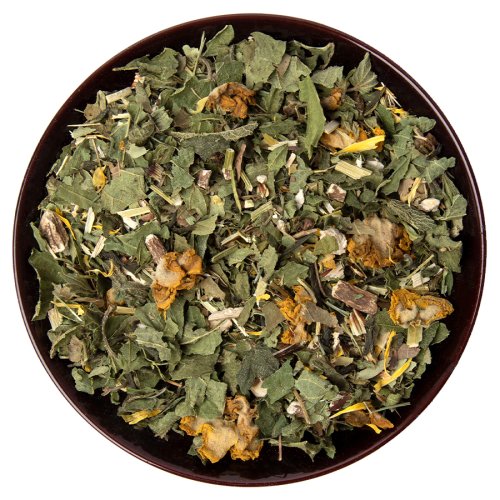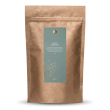Herbal infusion with horsetail for beneficial activation, plus nettle, bancha kari tea leaves, birch leaves, dandelion root, sweet clover, burdock root, walnut leaves, mullein flower, fermented sakura leaves and marigold petals.
Nettle
Although stinging nettle was an overlooked medicinal herb for a long time, it is now increasingly enjoying scientific interest.
Bancha Kari Leaves
Bancha is a pillar of the Japanese green tea tradition and is traditionally made from the coarser leaves of later harvests, with premium banchas made from leaves of the early intermediate harvest (meban). The tea is very mild, with an alkaline-mineral quality. It is rich in macrobiotics and ideal for the evening.
Birch Leaves
The silver birch (Betula pedula) tree belongs to the birch family (Betulaceae). There are about 40 species of birch, which are distributed across Central Europe, Asia and America. The most common at our latitudes is the silver birch, which stands out due to its black and white bark. Both the leaves and the bark of the tree have a long tradition of internal and external use.
Horsetail
Horsetail (Equisetum arvense) has been used since ancient times as a natural remedy and contains a whole range of valuable phytochemicals.
Dandelion
The dandelion (Taraxacum officinale) has been known in botany since ancient times. Valuable ingredients can be found in almost all parts of the plant, but are most concentrated in the roots.
Burdock Root
Greater burdock (Arctium lappa L.) belongs to the daisy family and is characterised by its reddish-purple flowers adorned with spiky bracts, while its roots take on a long, spindle-shaped form. Native to Europe, North America, and northern Asia, this plant predominantly thrives along roadsides. It held a significant role in ancient Greek herbalism and found its place in the herb gardens of historical figures like Hildegard von Bingen and the priest Kneipp.
Sweet Clover
Sweet clover (Melilotus officinalis) is a plant which grows mainly in Europe and Asia, which belongs to the legume family. The herb, which has a sweet fragrance, is used in European herbalism both internally as a tea and externally in the form of compresses.
Walnut Leaves
The leaves as well as the nuts of the walnut (Juglandaceae) have a rich flavour and are used in many teas.
Mullein Flower
Mullein flower (Verbasci flos) belongs to the Scropulariaeae family. It can reach heights of up to 2 meters tall and usually bears torch-like yellow inflorescences. In medieval times, the plant was dipped in tar and used as a torch. Hildegard von Bingen also combined the flowers with fennel. Today, the plant still enjoys great popularity and has been included by ESCOP and HMPC in their monographs.
Fermented Sakura Leaves
Sakura leaves are the leaves of the Japanese cherry (sakura) tree. The cherry tree is an important symbol of Japanese culture and represents not only beauty, but also transience. They have an intense, fruity aroma.
Marigold Petals
The marigold (Calendula officinalis) belongs to the daisy (Asteraceae) family, and is widespread in Europe. With its yellow and orange flowers, it is particularly striking and can be found in many gardens. The petals, when dried, can be used as a tea or in the form of an extract for external use.










